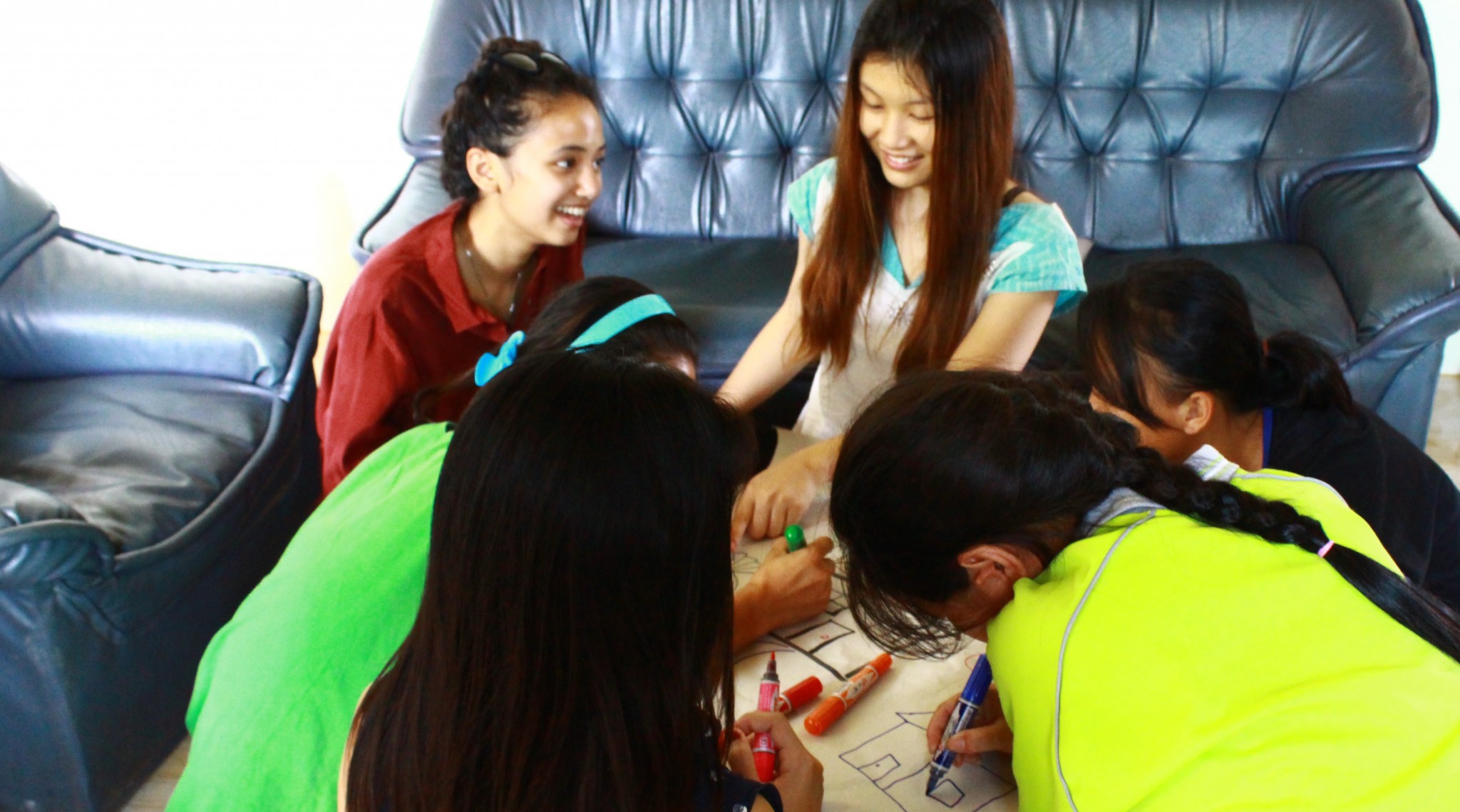Nattakan Chomputhong (Ann) BABSEACLE legal fellow.
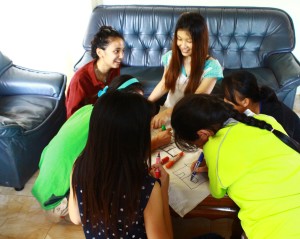 This is the fifth year that BABSEACLE has provided weekly legal lessons to the women at the Wildflower Home. We started by teaching children’s rights and English classes in September 2008, while also helping to build the vegetable gardens in October and November 2008. BABSEACLE and BABSEACLE Foundation still continually educate this community; women who often come from poor or marginalized communities and have little to no knowledge of legal matters. These classes teach basic legal rights and promote access to justice awareness, emphasizing the importance of the assertion of these rights. The regular classes raise the young women’s awareness of and knowledge about their legal rights in everyday situations, aiming to empower them and allowing them to deal confidently with such issues in the future. The initiative educates specifically about subjects that the young women are likely to encounter when they move on from the Wildflower Home and are establishing their own independent lives.
This is the fifth year that BABSEACLE has provided weekly legal lessons to the women at the Wildflower Home. We started by teaching children’s rights and English classes in September 2008, while also helping to build the vegetable gardens in October and November 2008. BABSEACLE and BABSEACLE Foundation still continually educate this community; women who often come from poor or marginalized communities and have little to no knowledge of legal matters. These classes teach basic legal rights and promote access to justice awareness, emphasizing the importance of the assertion of these rights. The regular classes raise the young women’s awareness of and knowledge about their legal rights in everyday situations, aiming to empower them and allowing them to deal confidently with such issues in the future. The initiative educates specifically about subjects that the young women are likely to encounter when they move on from the Wildflower Home and are establishing their own independent lives. 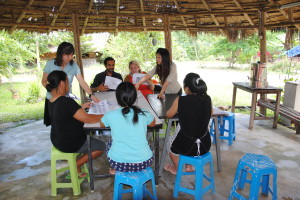
In collaboration with BABSEACLE, BABSEACLE Foundation hosts a number of international volunteers, legal experts and interns from different countries. Many others come from neighbouring countries in the region including Vietnam, Laos, Malaysia, Cambodia, and Indonesia. BABSEACLE, who is partnering with CLE Foundation on this project, runs an externship program for students with many coming from law schools in the United States. BABSEACLE also has a formal externship partnership with Queensland University of Technology in Australia. Participating interns, volunteers, and visiting experts all have a chance to teach and observe the lessons at Wildflower, allowing them to learn about the different cultures of the women (mostly Thai and indigenous) and the other interns (from all over the world). From this, participants can learn about local law and social issues and compare these to their home countries. After their experience at Wildflower, these international beneficiaries can learn from this exposure to real world problems as well as gaining an ethical sense of responsibility to the public and to marginalized communities, which they can then apply at home.
This year, Wildflower Legal Education Initiative has support from the United States Embassy under the Small Grant Program for Outreach to Society 2013. Their support to develop the curriculum to meet the women’s needs, and provide for the interactive teaching materials, which is a highly effective way to teach concepts that are sometimes not straightforward, is very meaningful for this project.
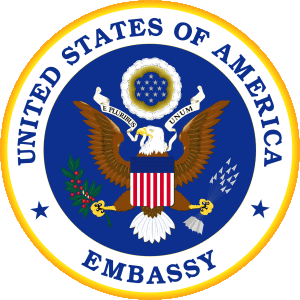

Reflection
‘I think that the Wildflower teaching programme is great – teaching these women about their legal rights is so relevant and important. These classes will genuinely help the women know their rights and protect the rights of themselves and their children when they leave Wildflower. I really enjoyed participating in the Wildflower lessons. We taught the young mothers about the Universal Declaration of Human Rights through visual aids so as to overcome the language barriers. The women were all lovely and seemed very interested in taking the classes and learning about their legal rights. (The babies were all super cute too!)’ – Sophie Geoghegan
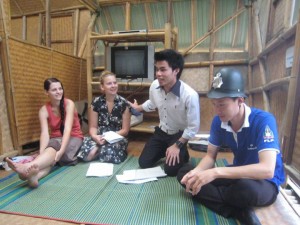 “Wildflowers have a lot of potential. We do not teach them, we just help them discover themselves. I can see them trembling but they are also full of hope and I know that I should help them get rid of their fear.” – Nguyen Hoang Duy
“Wildflowers have a lot of potential. We do not teach them, we just help them discover themselves. I can see them trembling but they are also full of hope and I know that I should help them get rid of their fear.” – Nguyen Hoang Duy
“Wildflower teaching was a very good activity I experienced during my externship legal study with BABSEACLE. Wildflower teaching is a good way to offer education on legal areas to those who have no opportunity to access legal information. Wildflower gives those people the opportunity to learn and open their minds through legal action.” – Phetkham Sengpunya
“Human rights is a sensitive topic; to educate about human rights, it’s important to manage the expectations generated by a greater awareness of rights. It’s different from other laws that are obviously enforced. Human rights need respect and awareness of rights, but in real life, many people only think about themselves and their benefits. This is the reason we still see many disadvantaged and marginalized people. I’m impressed to see groups of people value and respect human rights. I appreciate the value of justice and human rights work because it’s a result from working with heart.” – Nattakan Chomputhong

“No one can choose a good place to be born. Therefore, it is important for us to help those who don’t have good living conditions. I realized this reason to live when I came to Wildflower Home for the first time in my life. There were lots of young mothers holding babies who had lost their families. Some of them were under the age of twenty. I also understood that they had suffered from a lack of proper education, good health care, access to information, and particularly a lack of opportunity to access justice. Despite my small role in teaching and creating lesson plans, the Wildflower teaching project did allow me to get a deeper understanding of marginalized groups of people in real life and how important the social responsibility of a law student is.” – Nguyen Thị Thao Nguyen
“Wildflower Foundation teaching brings the Law into the practical world and away from mere rhetoric. It is irrefutable evidence that hands-on legal clinic improves societal life by making the Law closer to the day-to-day life fo those in marginalized communities. Besides, this initiative helps to spread legal knowledge to the public, significantly aiding the development of achieving a legal-literate society.” – Rais Imran
“Wildflower teaching is a meaningful and honorable project that brings the law to a marginalised community and is very useful for them to help them understand the law. People working with Wildflower teach women their basic rights and obligations and try to help them understand through simplified language. This significant work helps to bring the law closer to the community, which is an essential point on the way to achieving a legal-literate society. I’m proud to have been part of the Wildflower teaching.” – Minhnguyet Le

